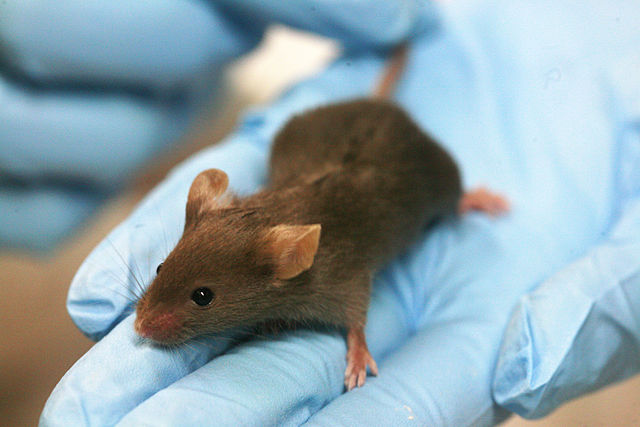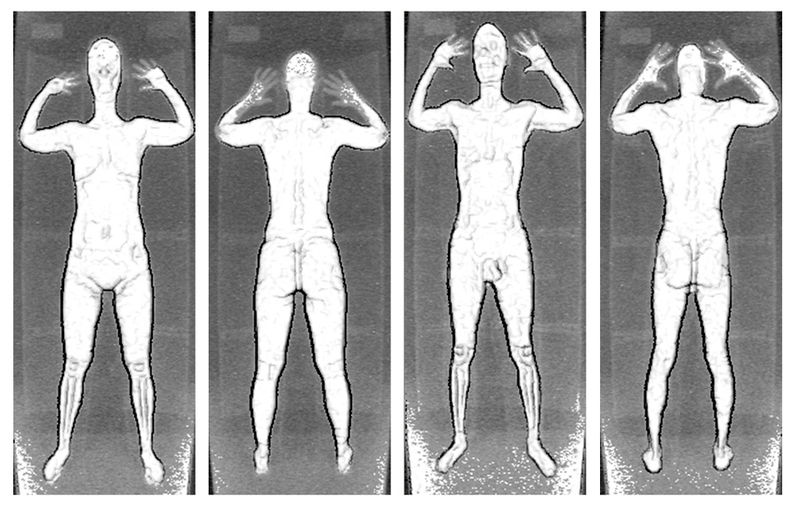
Credit: Rama at <a href="http://commons.wikimedia.org/wiki/File:Lab_mouse_mg_3263.jpg">Wikimedia Commons</a>.
A new paper in PNAS reports that three common chemotherapy drugs destabilize DNA in mice enough to trigger new mutations long after exposure to the drugs has ceased—mutations which are then passed down to their untreated offspring.
A similar phenomenon has been observed in mice exposed to radiation.
Nature News reports on the original radiation findings:
[Co-author and geneticist Yuri] Dubrova and his colleagues were studying the effects of radiation when, purely by chance, they decided to look at mutation rates in the offspring of exposed mice. ‘What we found was the biggest surprise of my life,’ he says. The children had several times more mutations in their eggs and sperm than their radiation-treated parents. ‘The genomes were unstable, and we still don’t know why.’
The researchers surmised that chemotherapy drugs might trigger even stronger genetic effects, since chemotherapy is given systemically and radiation therapy isn’t. So they investigated three common drugs—cyclophosphamide, mitomycin C and procarbazine—at mouse doses comparable to people doses, in the offspring of treated male mice. From the PNAS paper:
After paternal exposure to any one of these three drugs, expanded simple tandem repeat mutation frequencies were significantly elevated in the germ line (sperm) and bone marrow of their offspring. This… was attributed to elevated mutation rates at the alleles derived from both the exposed fathers and from the nonexposed mothers, thus implying a genome-wide destabilization.
The researchers caution:
Our data also raise important issues concerning delayed transgenerational effects in the children of survivors of anticancer therapy.
Although Nature News points out that mice only live two years and so pass on their damaged DNA before there’s much time for internal repair, whereas most humans treated for cancer are post-reproductive adults or adults made sterile by treatment:
‘So we’re talking about one group only: childhood cancer survivors,’ says Dubrova. One recent study found no significant impact of radiation or chemotherapy on the rate of birth defects in 4,699 children of childhood cancer survivors.










